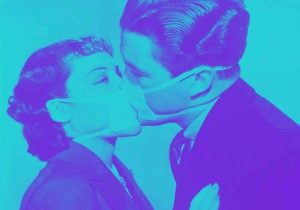We are now two months into the throes of the pandemic in America.
Trips are cancelled, ceremonies are postponed, loved ones are succumbing to the illness. Are we crouched among the helpless, groping and weeping like characters in the pages of a dystopian novel? Out of toilet paper, out of disinfectant, scouring the store six feet apart with concealed mouths, like C.S. Lewis’s Orual in Till We Have Faces. I keep thinking the skies will clear one day. But today is not that day.
Although I am a unapologetic introvert, I have found that compulsory quarantine is far worse than the voluntary kind. On the rare occasion that I do speak with another human being whom I don’t live with, I find myself meandering on, seeking new avenues of conversation. And when my friend finally begins to pivot and step away, to wind down the talk and shift to more pressing matters, I am adrift in sadness. Again, in this same old rut. Of waking and eating and completing tasks like my character on Animal Crossing and watching the last amber rays of a spring sun sink below my office window. And then I am summoned to sleep again. Survival is not at all romantic. It is, instead, colored with an emotional uneasiness in the fluctuation between uncertainty and reassurance. “I am tired” is mingled with, “I have a headache” or “I am depressed.” At the beginning of all of this, I was sure that I would tackle my ever-growing list of responsibilities and writing duties with a renewed vigor and enthusiasm. No job to distract and exhaust me. No endless squeak of the hamster wheel of obligation. Liberation at last. But with that liberation is an especial kind of malaise. I had no idea that routine functioned as a kind of balm to my soul, that the comfort of the ordinary was so essential to my existence.
You blink and there is no normal, just the familiar presence of purgatory. There is no new normal, as the experts are predicting. Not yet.
Please be certain that I am not juxtaposing my privilege, my warm meals and comfortable home, with those in third-world countries (or even my own) shivering beneath tyranny and limited medical resources and hunger. I am well aware that I “have it pretty good.” This does not, however, diminish or dismiss the struggle of those who have dealt with mental illness, financial stress, or the loss of someone dear during this pandemic. Even in the global superpower that is America. F. Scott Fitzgerald shows us that misery is nothing if not democratic. It visits weak and strong alike, the poor and rich, the optimist and the pessimist. Wealth and privilege do not, surprisingly, make us immune to calamity.
But humans are fairly resilient. Our close ancestors survived the Spanish flu, a similar malady. They survived two world wars. They held their collective breath for loved ones to return from foreign battlefields, for job vacancies to appear in the post during an hour of certain fiscal ruin, for their empty bellies to cease aching, for relief in the midst of an angry, oppressive government. Further back they endured a bloody civil war that pitted brother against brother. Plagues and famine. Some of these perils were of our own making, humans inventing atrocities with an unparalleled fervor. History books are full of these disasters. And yet, they fell in love and had babies in dark hours, they indulged in laughter and joy, seeking common ecstasies in the crevices of life. This should rally and inspire us to move forward, yes? Be patient with me, reader. I am working all of this out, just like you. I have stared at the half-full glass until my vision is blurred a bit. How fitting that my watch battery is low as I type this. Even time itself is weary.
But we will be okay. I know we will. I have a great faith in God and in you, in all of us. Even those who splatter their vitriol all over social media, who hate and troll and engineer a new kind of sadness. There are those who choose enmity because it is easy, automatic. David Foster Wallace declared this as our “default setting.” What a wretched race we are when our natural setting is hatred. Or is it? Perhaps this time of quarantine will be one of reflection and change. Perhaps it won’t. But I’m still hopeful.
I took piano lessons as a child, and there is something lovely about minor chords. Not because I relish the dissonance or celebrate straying from uniformity like some crazed iconoclast. I enjoyed them because I knew that, eventually, they would resolve. The notes would hover indistinct and, with this enigmatic beauty, would settle into a much-anticipated dissolve. There was a darkness to it, a darkness even a musical novice would recognize, but then you wait. Your eyes scan the next couple of bars as your fingers stay obedient to the rhythm of the metronome. There is it. In just a few beats…the great mercy of a resolve. A hope restored.
But for now, we wait. We breathe. We realign…and we write.
